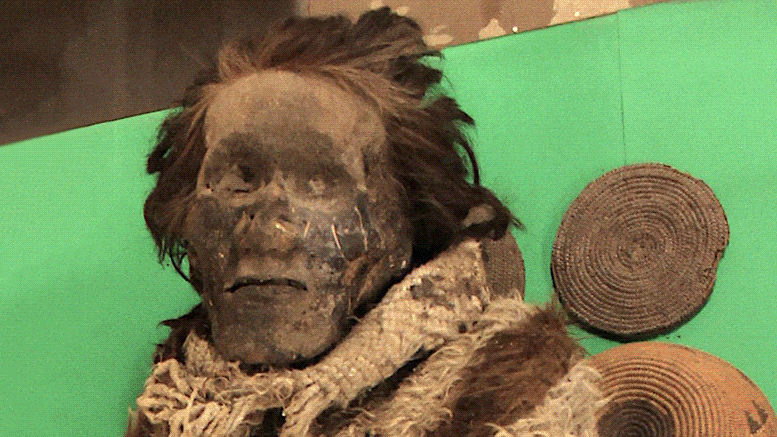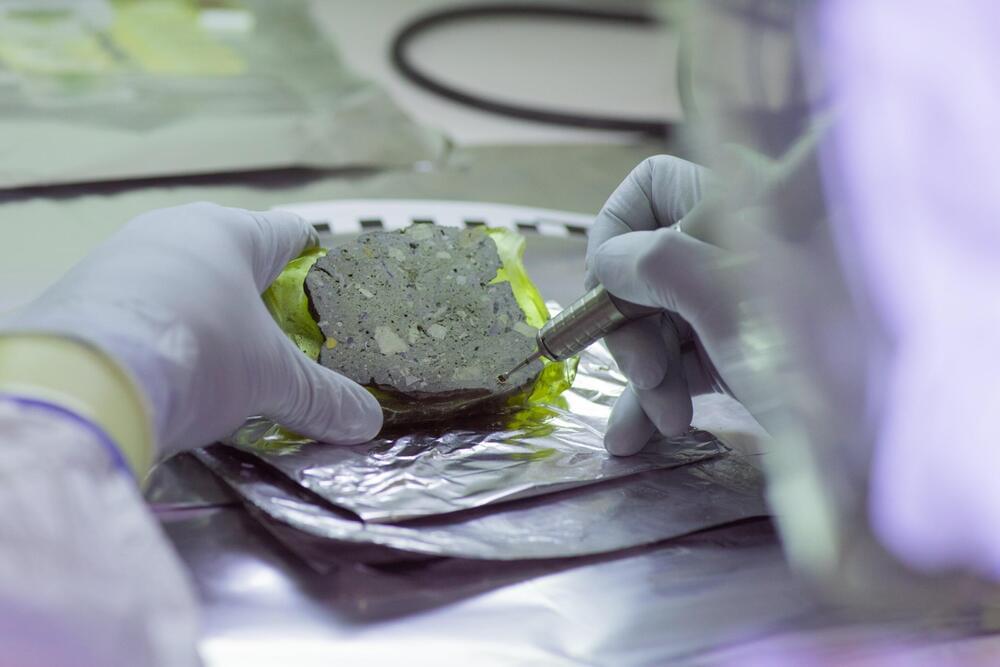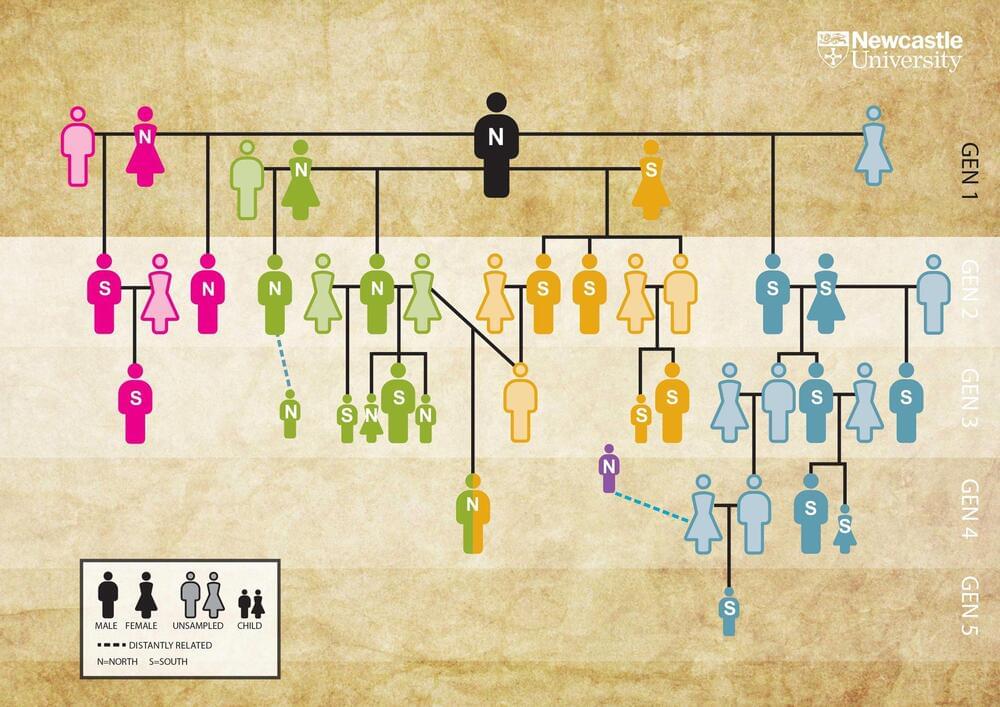Researchers at Human Longevity have developed technology that can generate images of individuals face using only their genetic information. But not all are convinced.



More than fine, actually. Much more, she says.
“This is major for me and my family,” she says. “Two years without me being in the hospital? Wow. We just can’t believe it. But we’re so grateful.”
She’s doing so well for so long that she’s officially no longer in the landmark study she volunteered for. That involved doctors taking cells out of her bone marrow, and editing a gene in the cells in their lab, using the revolutionary gene-editing technique known as CRISPR. CRISPR allows scientists to make very precise changes in DNA much more easily than ever before. Many think it will revolutionize medicine.
Our bodies have some healing and regenerative capabilities. For most of us, cuts will mend, we’ll recover from mild infections, and at the cellular level, | Genetics And Genomics.
The leading scientific social networking website and producer of educational virtual events and webinars.

New technique means head lice can provide clues about ancient people and migration.
Human DNA
DNA, or deoxyribonucleic acid, is a molecule composed of two long strands of nucleotides that coil around each other to form a double helix. It is the hereditary material in humans and almost all other organisms that carries genetic instructions for development, functioning, growth, and reproduction. Nearly every cell in a person’s body has the same DNA. Most DNA is located in the cell nucleus (where it is called nuclear DNA), but a small amount of DNA can also be found in the mitochondria (where it is called mitochondrial DNA or mtDNA).

A major new study of ancient DNA has traced the movement of people into southern Britain during the Bronze Age.
In the largest such analysis published to date, scientists examined the DNA of nearly 800 ancient individuals.
The new study, led by the University of York 0, Harvard Medical School, and the University of Vienna, shows that people moving into southern Britain around 1300‒800 BC were responsible for around half the genetic ancestry of subsequent populations.

“Interstellar Travel and Post-Humans” by Martin Rees is one of the chapters of the book “The Next Step: Exponential Life”.
Astronomers like myself are professionally engaged in thinking about huge expanses of space and time. We view our home planet in a cosmic context. We wonder whether there is life elsewhere in the cosmos. But, more significantly, we are mindful of the immense future that lies ahead—the post-human future where our remote descendants may transcend human limitations—here on Earth but (more probably) far beyond. This is my theme in the present chapter.
The stupendous timespans of the evolutionary past are now part of common culture. But the even longer time-horizons that stretch ahead—though familiar to every astronomer —have not permeated our culture to the same extent. Our Sun is less than half way through its life. It formed 4.5 billion years ago, but it has got six billion more before the fuel runs out. It will then flare up, engulfing the inner planets and vaporizing any life that might still remain on Earth. But even after the Sun’s demise, the expanding universe will continue—perhaps forever—destined to become ever colder, ever emptier.
Any creatures witnessing the Sun’s demise six billion years hence will not be human —they will be as different from us as we are from a bug. Post-human evolution could be as prolonged as the Darwinian evolution that has led to us, and even more wonderful—and will have spread far from Earth, even among the stars. Indeed, this conclusion is strengthened when we realize that future evolution will proceed not on the million-year timescale characteristic of Darwinian selection, but at the much accelerated rate allowed by genetic modification and the advance of machine intelligence (and forced by the drastic environmental pressures that would confront any humans who were to construct habitats beyond the Earth). Natural selection may have slowed: its rigors are tempered in civilized countries. But it will be replaced by “directed” evolution.

Sediments in which archaeological finds are embedded have long been regarded by most archaeologists as unimportant by-products of excavations. However, in recent years it has been shown that sediments can contain ancient biomolecules, including DNA. “The retrieval of ancient human and faunal DNA from sediments offers exciting new opportunities to investigate the geographical and temporal distribution of ancient humans and other organisms at sites where their skeletal remains are rare or absent,” says Matthias Meyer, senior author of the study and researcher at the Max Planck Institute for Evolutionary Anthropology in Leipzig.
To investigate the origin of DNA in the sediment, Max Planck researchers teamed up with an international group of geoarchaeologists—archaeologists who apply geological techniques to reconstruct the formation of sediment and sites—to study DNA preservation in sediment at a microscopic scale. They used undisturbed blocks of sediment that had been previously removed from archaeological sites and soaked in synthetic plastic-like (polyester) resin. The hardened blocks were taken to the laboratory and sliced in sections for microscopic imaging and genetic analysis.
The researchers successfully extracted DNA from a collection of blocks of sediment prepared as long as 40 years ago, from sites in Africa, Asia, Europe and North America. “The fact that these blocks are an excellent source of ancient DNA—including that originating from hominins—despite often decades of storage in plastic, provides access to a vast untapped repository of genetic information. The study opens up a new era of ancient DNA studies that will revisit samples stored in labs, allowing for analysis of sites that have long since been back-filled, which is especially important given travel restriction and site inaccessibility in a pandemic world,” says Mike Morley from Flinders University in Australia who led some of the geoarchaeological analyses.

A major new study of ancient DNA has traced the movement of people into southern Britain during the Bronze Age. In the largest such analysis published to date, scientists examined the DNA of nearly 800 ancient individuals.
The new study, led by the University of York, Harvard Medical School, and the University of Vienna, shows that people moving into southern Britain around 1300‒800 BC were responsible for around half the genetic ancestry of subsequent populations.
The combined DNA and archaeological evidence suggests that, rather than a violent invasion or a single migratory event, the genetic structure of the population changed through sustained contacts between mainland Britain and Europe over several centuries, such as the movement of traders, intermarriage, and small scale movements of family groups.

Analysis of ancient DNA from one of the best-preserved Neolithic tombs in Britain by a team involving archaeologists from Newcastle University, UK, and geneticists at the University of the Basque Country, University of Vienna and Harvard University, has revealed that most of the people buried there were from five continuous generations of a single extended family. Credit: Newcastle University/Fowler, Olalde et al.
Although the right to use the tomb ran through patrilineal ties, the choice of whether individuals were buried in the north or south chambered area initially depended on the first-generation woman from whom they were descended, suggesting that these first-generation women were socially significant in the memories of this community.
There are also indications that ‘stepsons’ were adopted into the lineage, the researchers say — males whose mother was buried in the tomb but not their biological father, and whose mother had also had children with a male from the patriline. Additionally, the team found no evidence that another eight individuals were biological relatives of those in the family tree, which might further suggest that biological relatedness was not the only criterion for inclusion. However, three of these were women and it is possible that they could have had a partner in the tomb but either did not have any children or had daughters who reached adulthood and left the community so are absent from the tomb.

“Each of these mutations teach us something, and point to a particular gene as a potential target for new and more effective pain medications,” said Dr. Stephen G. Waxman, a neurologist at Yale, told the New York Times.
The hope is that discoveries like these lead to better treatments for chronic pain, which affects about 50 million U.S. adults and is often the reason people become addicted to opioids. Scientists also plan to investigate how Cameron’s wounds seem to heal quickly and leave little scarring.